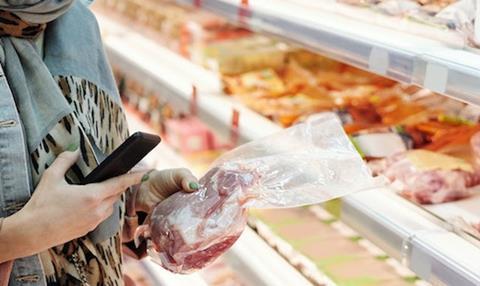New restrictions on the foodservice and hospitality sectors saw take-home grocery sales increase by 10.4% in the latest four-week period, according to the latest market insight from Kantar.

In the 12-weeks to the 4th October, grocery sales also rose by 9.4%. Fraser McKevitt, head of retail and consumer insight at Kantar, said: “Shoppers are moving a greater proportion of their eating and drinking back into the home.
“This is likely a response to rising Covid-19 infection rates, greater restrictions on opening hours in the hospitality sector, and the end of the Government’s ‘Eat Out to Help Out’ scheme.”
Despite a growing number of coronavirus cases and further restrictions to the eating out sector, there is only limited evidence of consumers stockpiling goods at a national level in the past month. Fraser McKevitt added: “The seven days from Monday 21st to Sunday 27th September were the busiest since March, with 107 million trips recorded, but that number was nowhere near the 175 million seen just prior to the first national lockdown.”
Online
Online sales in the latest four weeks grew by 76% compared to last year, with one in five households ordering groceries via the internet.
The proportion of online sales remains unchanged from last month at 12.5%, which suggests that many shoppers are choosing to stick with deliveries as the pandemic continues, according to Kantar. Ocado has benefited from the trend, growing its 12-week ending sales by 41.9%.
Fraser McKevitt added: “Ocado has increased the number of shoppers using its service in the latest period – the only retailer to do so – adding 22,000 customers. Its new partnership with Marks & Spencer is no doubt part of the appeal. Ocado’s share of the market rose this period by 0.4 percentage points to 1.8%.
“Waitrose is keeping pace with its own online offer. Although starting from a relatively low base, it was once again the fastest growing retailer online this month. Waitrose also increased sales through its physical stores, with overall sales increasing by 8.9%.”
Market share
Lidl has been in continual double-digit growth since December, accelerating its rate in the past 12 weeks to 11.7%. Iceland’s growth of 17.3% took its market share to 2.3%, with Aldi also recording growth of 7.8%, taking its share to 8.0% of the market.
Fraser McKevitt added: “New Tesco CEO Ken Murphy took over the reins at Britain’s biggest supermarket in October, with positive news to report – Tesco maintained its market share year on year for the second period in a row. It now holds a 26.9% slice of the market – backed by sales growth of 9.2%. Frozen, an early focus for the retailer’s Clubcard-only promotions, was the single fastest growing food category for Tesco. Asda, which welcomed new owners this month, saw sales grow by 5.4%, but its market share fell to 14.4%.”
Morrisons saw its market share increase by 0.2 percentage points to 10.1% on the back of 11.5% growth, with Sainsbury’s seeing increased sales by 6.8% and posting a market share of 14.9%.
The convenience channel saw annual growth rates drop in line with the market. Co-op held market share at 6.6%, with growth of 9.3%.
This story was originally published on a previous version of the Meat Management website and so there may be some missing images and formatting issues.















